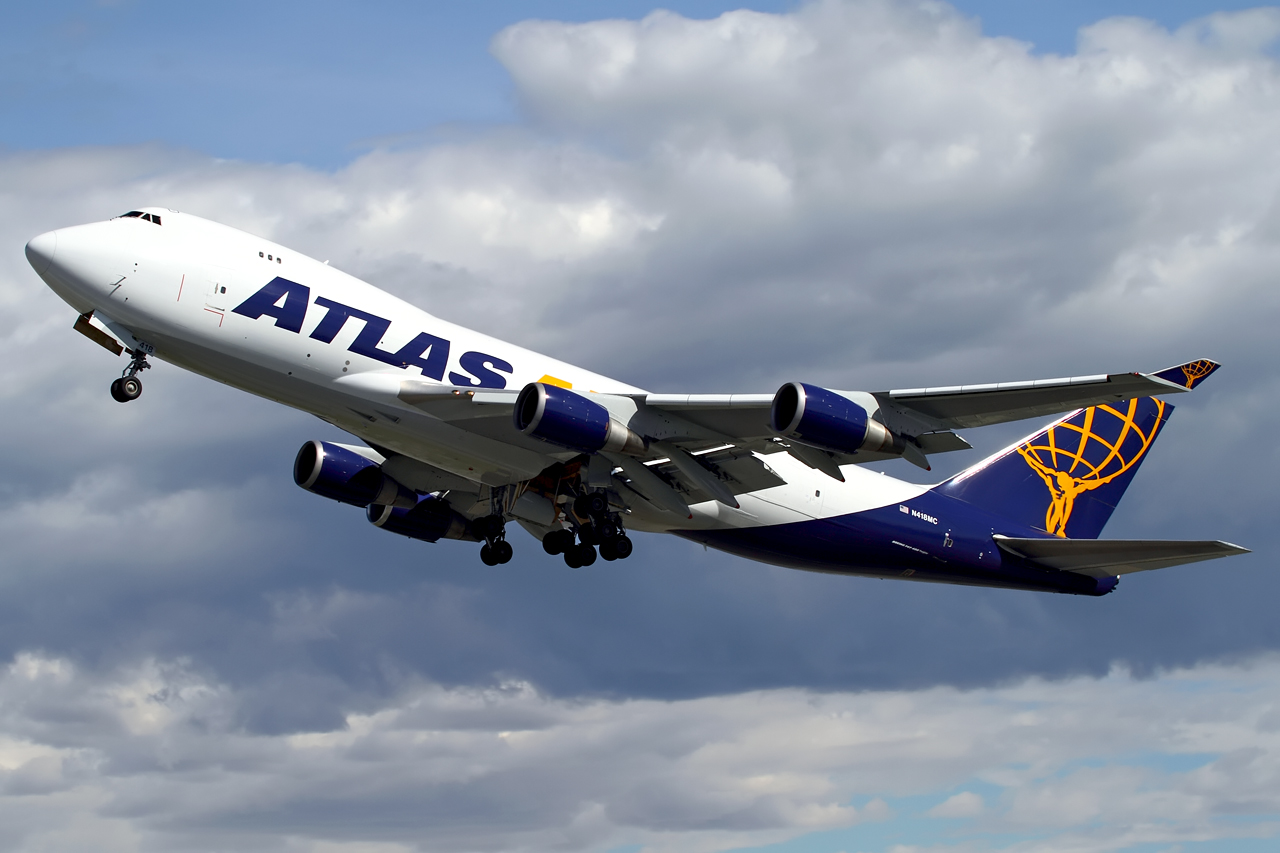Atlas and Cathay working on 747 inspections after lightning protection concerns
07 / 12 / 2023

Photo: Atlas Air
Two of the world’s largest operators of Boeing 747 aircraft have already started work on inspecting their freighter aircraft after concerns emerged over the early degradation of the lightning protection systems.
Earlier this month, the US Federal Aviation Administration (FAA) issued an airworthiness directive ordering all US-registered 747 operators to carry out inspections.
Boeing has also issued a multi-operator message on November 13 recommending that the inspection work is completed.
An Atlas Air company spokesperson told Air Cargo News that it had been aware of the inspection order and had got ahead in carrying out the work.
“At Atlas, the safety of our employees and aircraft are always of the highest priority,” the spokesperson said.
“The company has been aware of the FAA’s requirement to perform inspections on fuel-tank lightning-protection features on all Boeing 747 variants for some time now.
“Accordingly, we have proactively, with Boeing and the FAA, performed these inspections on several our 747 aircraft already, and we will continue to do so for all 747s in our fleet, in accordance with the FAA’s airworthiness directive.
“We do not expect this to result in disruptions to our operations.”
Air Cargo News sister title FlightGlobal said that Atlas Air Worldwide Holdings and its affiliates operate 56 747s, more than any other US carrier.
Cathay Cargo, which has a fleet 20 freighters – six 747-400ERFs and 14 747-8Fs, has also already started carrying out the checks.
“Following the FAA’s mandate issued on November 30, which directs checks to be conducted on all 747 aircraft within 120 days, Cathay Cargo is working through the impact of this and expects to adjust its schedules in order to comply with the mandate.”
The FAA directive gives freighter operators 120 days to comply, while operators of passenger 747s have 90 days.
Freight forwarders have expressed concern that the inspections and any corrective work may disrupt operations.
One forwarder contact had been told that each aircraft would be out of service for four to five days while the inspections and work is carried out, while Boeing said the process would take two or three days.
“Boeing supports the US Federal Aviation Administration’s Immediately Adopted Rule, which makes mandatory the guidance we have provided to operators. We remain in communication with the FAA and our customers on this matter,” the airframe said.














